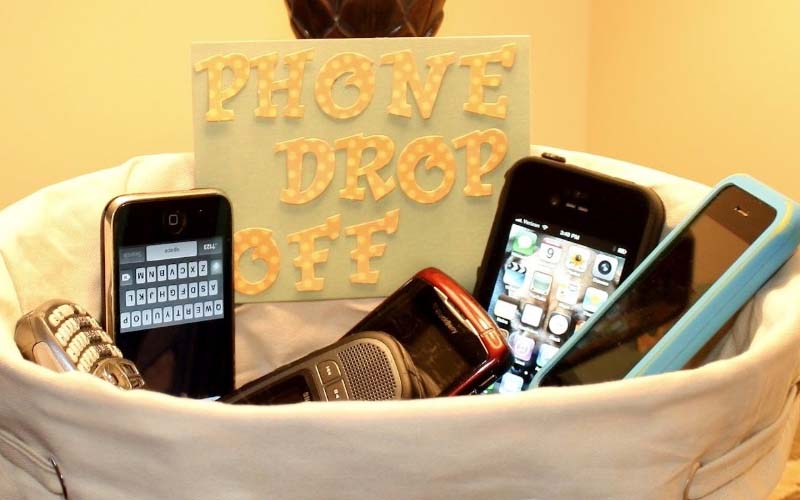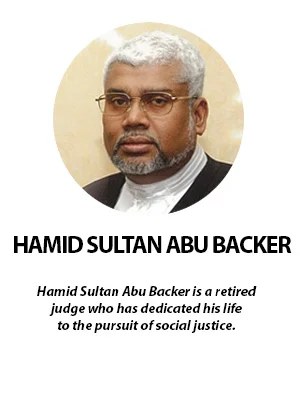Seizure of smartphones without warrant an abuse of power


In England, as in most civilised countries that value privacy and human rights, police and investigative agencies do not have carte blanche to seize mobile phones, computers and personal items without a court order, commonly referred to as a warrant.
English courts, in particular, are very protective of public rights and will not allow investigative agencies to abuse their powers, even in cases involving serious crimes.
This prohibition also encompasses the right to inspect the contents of devices and obtain passwords except in compliance with strict protocols or directions issued by the court.
Any breach will result in disciplinary action. An action for damages may also lie for breach of constitutional, statutory or human rights.
Countries higher up on the corruption index, however, have less regard for human rights and the right to privacy. They are ruled by law, rather than governed according to the rule of law.
It is my observation that the laws of these countries would provide investigative agencies with greater rights when it comes to searching the body or entry into any premises to search for and seize material evidence, especially in relation to serious offences.
Such evidence is usually admissible in court even if the search and seizure is unlawful or breaches protocol.
In my view, even suspicions that a serious offence may have been committed cannot justify the violation of protected rights such as the freedoms of speech and assembly, and many others.
Any encroachment into constitutionally protected rights without strict observation of protocol would, in my view, be tantamount to an abuse of power.
In countries where such protocols are not in place, it falls on the relevant members of the legal industry and public-minded organisations to move the court for direction and guidance. This is what currently takes place in India.
It is important for the public as well as the executive, legislature, judiciary and related agencies to appreciate that in the current era, smartphones are likely to contain confidential and personal information. In fact, it is likely to also contain private information belonging to third parties. The unwarranted exposure of such information may destroy the fabric of society.
A mobile phone these days also contains the financial information of its owner, and if access passwords are obtained by investigative officers without judicial supervision, there is a grave risk of monies being misappropriated. A victim may be left helpless and unable to report such crimes, especially if threatened by those cloaked with authority over them.
There is also a risk that solicitor and client privilege will be violated since modern day phones regularly contain texts and emails exchanged between them.
All readers own smartphones and will immediately know the implications if their device is seized unlawfully by the police.
It would not be an exaggeration for me to say that the handing over of mobile phones and computers, with password access, and without judicial supervision represents the most serious threat to privacy and individual liberty in this century.
The public, with the support of the legal fraternity, must rise to safeguard the liberty of all persons, either through legislation or the courts.
For example, even a miscreant can lodge a complaint for alleged criminal defamation.
The law on defamation is straightforward and prosecutorial agencies can already charge a person purely based on allegedly defamatory comments published and a statement and evidence furnished by the complainant.
It is then for the court to decide whether the posting is defamatory and malicious and whether it satisfies all the elements of the crime as stipulated in the Penal Code.
In such cases, there is no justification or necessity for investigation agencies to seize mobile phones, computers or other documents to obtain evidence for prosecution of the charge. Under our constitutional jurisprudence, such excessive actions would be tantamount to abuse of power.
The irony in Malaysia is that despite the robust oaths of office imposed on constitutional functionaries by the drafters of the Federal Constitution, the legal industry has yet to develop any jurisprudence to govern such abuses.
In PP v. Aluma Mark Chinonso & another appeal (2020), I explained that the oath of office vests judges with judicial power and gives them a “constitutional soul” to act judiciously.
The parameters of judicial power are also spelt out in the oath. While in England, judicial power is subservient to parliament, in Malaysia, it is subservient only to the constitution.
In my view, what that means is that the rule of law in Malaysia is not the same as the one which applies in England or India. This is because the oaths of office taken by functionaries within the three pillars of the governments in these two countries are not same as those prescribed by our supreme law.
In Malaysia, these oaths impose a constitutional obligation to “preserve, protect and defend” the constitution.
That means the courts are obliged to strike down, either wholly or in part, laws which enable such abuses of power. Courts are also empowered to issue proper directions to the other pillars of government calling for the repeal or amendment of such laws.
In addition, our constitution is framed in such a manner that the final say on the rule of law rests with the rulers. This is evidenced by the army being placed under their control.
Thus, unlike in England, it is important to engage the rulers whenever any of the three pillars do not perform its functions according to the rule of law, for instance if clean and corrupt-free government machinery is not in place.
Regrettably, Malaysia has over the last four decades suffered the indignity of various financial vices, which have contributed significantly to the decline in value of our ringgit as compared to the Singapore currency. Indeed, we are fast moving towards becoming a failed state.
The legal industry must bear its share of the blame for this.
Its wilful blindness in the face of abusive laws and practices has allowed corruption and misconduct in office to fester and has compromised the public’s rights and its legitimate expectation of social justice as given by the constitution.
The time has come to hold our leaders accountable under the robust oaths of office set out in the Federal Constitution and apply the judicial power of the court to arrest the perpetrators of all forms of constitutional violations by office holders.
The academia and the legal industry must equip itself with knowledge of this jurisprudence and debate it vigorously both among themselves and in public.
The views expressed are those of the writer and do not necessarily reflect those of FMT.
Desain Rumah Kabin
Rumah Kabin Kontena
Harga Rumah Kabin
Kos Rumah Kontena
Rumah Kabin 2 Tingkat
Rumah Kabin Panas
Rumah Kabin Murah
Sewa Rumah Kabin
Heavy Duty Cabin
Light Duty Cabin
Source























